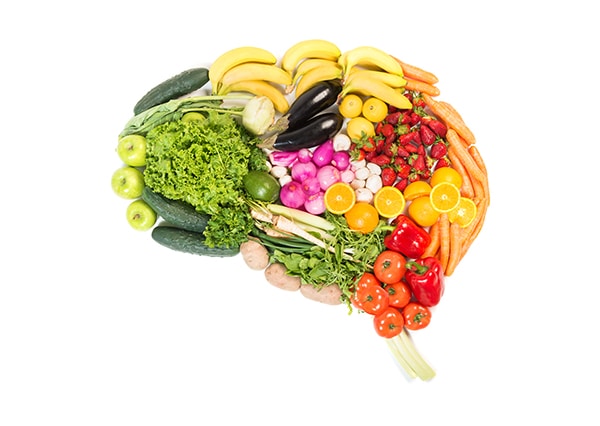
Tryptophan-Rich Foods
Tryptophan is an amino acid (the building blocks of proteins) that can be converted in the body to the neurotransmitter serotonin which can elevate and enhance mood, and regulates sleep. As more serotonin is made when more tryptophan enters the brain, it has been claimed that foods high in tryptophan, such as chicken and turkey, soybeans, cereals, tuna, nuts, seeds and bananas, may increase serotonin levels and hence improve mood.
However, the situation is not so simplistic to say that by eating a bunch of bananas, mood will be improved. Other amino acids present in the foods may act as competitors for crossing the blood-brain barrier, and there are really many other influencing factors that need to be considered. Robust evidence to show that eating lots of foods rich in tryptophan can really improve mood is still lacking.
What About Chocolate?
It has also been suggested by some researchers, that increased Tryptophan entering the brain and the resultant increase in serotonin happens when diets are high in carbohydrates, and this has also been used to explain carbohydrate craving when sweet foods are eaten to elevate mood. Chocolate is also a popular food when mood is low, with some additional compounds in chocolate being also implicated. However, there is not enough evidence to support a physiological basis for this effect, and it is likely that some of the pleasure of eating these foods comes from their strong association with reward and special occasions, and with a cultural learning of these foods as ‘comfort’ foods.
Vitamins and Minerals Affecting Mood and Brain Function
The European Food Safety Authority (EFSA) has looked at the scientific evidence that supports health claims and has approved claims for some nutrients in relation to psychological and cognitive functions. Deficiency in such nutrients can affect mood. Particularly important are the B vitamins including thiamin, niacin and folate, and the minerals iron and zinc.
It should be remembered though, that deficiency resulting in low mood does not equate to the opposite, (that eating large quantities of these nutrients will promote better mood) so high doses of supplements may not be advisable – levels around recommended amounts are a safer option for long-term use.
| Vitamin/mineral | Function | Food sources |
| B Vitamins | ||
| Folate | Contributes to normal psychological function and contributes to the reduction of tiredness and fatigue | Liver, green vegetables, chickpeas, brown rice, fortified breakfast cereals, marmite |
| Niacin
|
Contributes to normal psychological function and contributes to the reduction of tiredness and fatigue | Meat, fish, milk, eggs, cereal |
| Thiamin
|
Contributes to normal psychological function | Wholegrains, vegetables, peas, eggs, liver |
| Pantothenic acid | Contributes to normal mental performance and reduction of tiredness and fatigue | Wholegrains, green vegetables, tomatoes, potatoes, dairy |
| Other micronutrients | ||
| Iron | Contributes to normal cognitive function and contributes to the reduction of tiredness and fatigue | Red meat, poultry, fish, beans, dark green leafy veg |
| Zinc | Contributes to normal cognitive function | Meat, wheat, seeds, beans, nuts |
There have also been suggestions that low intakes of selenium are linked to higher depression and that supplementation of selenium can improve mood, but the evidence to support this is limited and inconsistent. Eggs, poultry, fish and shellfish, as well as some nuts and seeds (e.g. brazil nuts) can be good sources of selenium.
Long Chain Omega-3 Fatty Acids
The interest in the link between essential fatty acids and mood perhaps stems from the fact that long chain omega 3 fatty acids make up a large proportion of human brain tissue, particularly in the brain cell membranes and these fatty acids have been shown to have neuroprotective properties. It has been suggested that long chain omega 3 fatty acids may affect mood by maintaining healthy brain cell membranes, allowing effective signalling from neurotransmitters. Indeed EFSA published a favourable opinion that these long chain omega-3 fatty acids contribute to the maintenance of normal brain function.
A rich natural source of these fatty acids in the diet is oily fish Recently, reviews have been published that have looked at the impact of fish oil supplements on both cognitively healthy older persons, and persons with dementia, but these have shown no benefit on progressive cognitive function in either population group. Supplements with fish oils or specific fatty acids do not provide the same range of nutrients that you get from fish. To what extent long chain omega-3 fatty acids contribute to a protective effect is still unclear, but it is likely that other components in fish, such as B vitamins, may contribute to the beneficial effects.
Carbohydrate = Glucose = Brain Power
The supply of adequate energy to the brain comes from glucose, and this comes mostly from the carbohydrates we eat in our diet – from foods including fruit and vegetables, potatoes, cereals and bread. But it’s important to know that once your blood glucose is within the normal range, eating more will not further boost your brain power!
Mood and Diet are Related
Mood and diet are related. Some of this relates to specific nutrients, but some are also due to the association of foods with reward and pleasure, as well as their cultural significance.
A diet to prevent low moods would follow general healthy eating guidelines, but hydration is important too. Dehydration can be associated with confusion and irritability, so it is important to try and drink 6-8 glasses of fluid a day.



